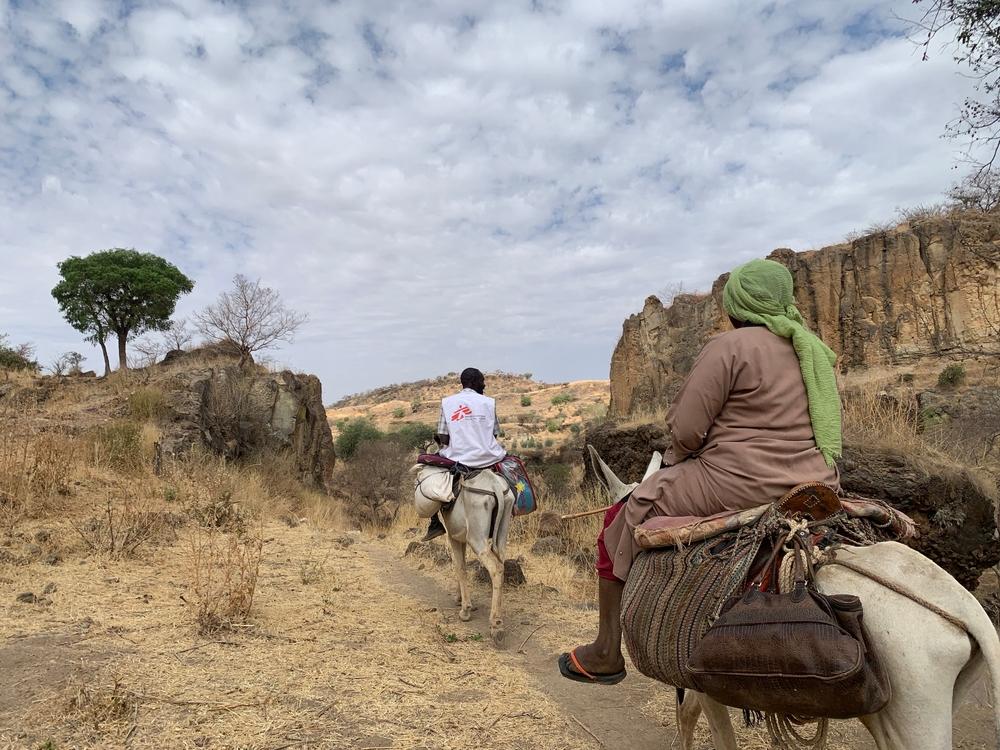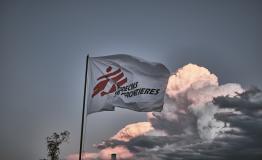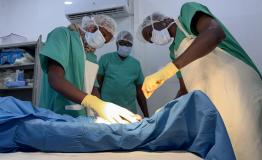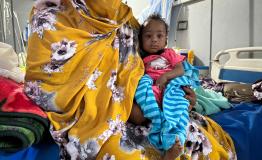Darfur, 15 July 2025– As conflict and isolation continue to cut off entire areas in Darfur from essential services, the communities of south Jebel Marra, Sortoni, Rokero, in Jebel Marra, a remote mountainous area, have been deprived from adequate assistance and snubbed by aid actors for over two years since the war started between the Sudanese Armed Forces and the Rapid Support Forces despite enduring horrid conditions. Médecins Sans Frontières calls on donors and other humanitarian actors to step up their support to address the growing needs.
“We see aid trucks passing by, but they never stop,” says Zeineb, a member of the community in Sortoni. “We are suffering too. Why are we not considered?”
Sortoni, a village that was once a humanitarian hub for the region, now feels abandoned. It hosts a camp that was created after violence broke out in the area in 2016 and once housed 55,000 displaced people. Since the war, it has seen aid organizations withdraw, leaving behind empty buildings and dry taps. MSF remains the only international NGO working in Sortoni, providing basic healthcare and nutrition programs. However, the needs far exceed the available resources, with 612 children under five admitted for treatment of acute malnutrition since the start of 2025.
Access to healthcare remains one of the most urgent and challenging issues in conflict-affected regions across Darfur. MSF has been working to provide medical care to communities cut off by both geography and conflict throughout. In south Jebel Marra, despite the difficult terrain and ongoing insecurity, MSF teams have managed to carry out over 23,200 medical consultations and treat nearly 3,000 malaria patients in the first half of 2025 alone.
“Providing medical care in Jebel Marra goes beyond logistics,” says Resit Elcin, MSF Project Coordinator in Kass. “We cross mountains to support people who live in isolation and face difficulties accessing basic healthcare services after years of neglect and conflict.”
During the measles vaccination campaign in Rokero in November 24 during which MSF teams vaccinated over 9,000 children, Marwan Taher, MSF’s Head of Mission in Central Darfur, witnessed how the need for humanitarian aid is visible everywhere. The healthcare system is on the brink, food insecurity is rampant, and waves of displaced people continue to arrive. MSF is one of only four international humanitarian organizations still operational in the area, struggling to fill gaps far beyond their capacity. In June 25, over 75000 children were vaccinated in Rokero after a measles outbreak in the area.
The humanitarian situation in Darfur is critical, with massive areas remaining hard to reach and growing needs. MSF’s continued presence in places like in South Jebel Marra, Rokero, and Sortoni is proof that humanitarian work remains possible, even under the harshest conditions. However, without urgent international support, the future of these communities remains bleak.



